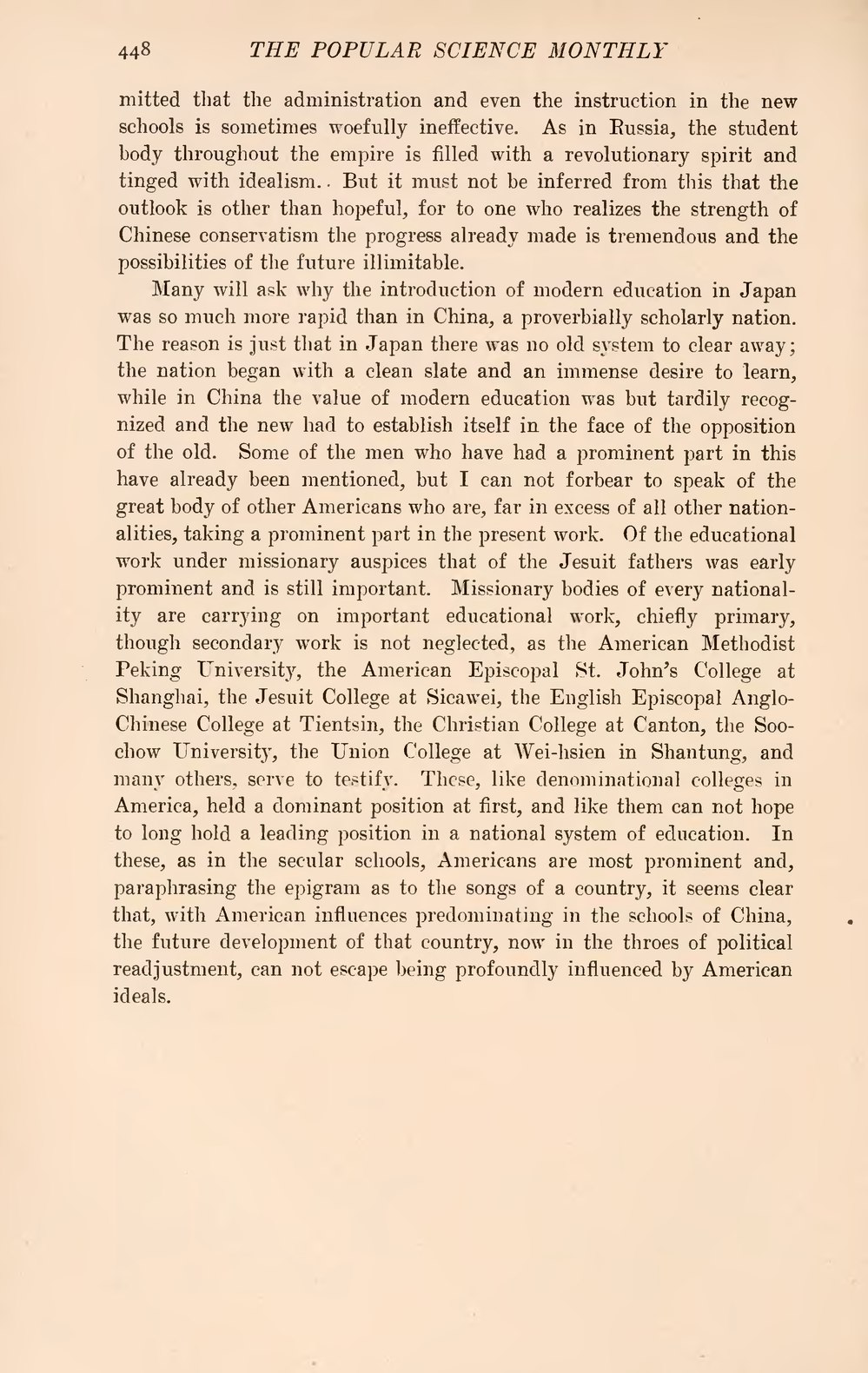mitted that the administration and even the instruction in the new schools is sometimes woefully ineffective. As in Russia, the student body throughout the empire is filled with a revolutionary spirit and tinged with idealism. . But it must not be inferred from this that the outlook is other than hopeful, for to one who realizes the strength of Chinese conservatism the progress already made is tremendous and the possibilities of the future illimitable.
Many will ask why the introduction of modern education in Japan was so much more rapid than in China, a proverbially scholarly nation. The reason is just that in Japan there was no old system to clear away; the nation began with a clean slate and an immense desire to learn, while in China the value of modern education was but tardily recognized and the new had to establish itself in the face of the opposition of the old. Some of the men who have had a prominent part in this have already been mentioned, but I can not forbear to speak of the great body of other Americans who are, far in excess of all other nationalities, taking a prominent part in the present work. Of the educational work under missionary auspices that of the Jesuit fathers was early prominent and is still important. Missionary bodies of every nationality are carrying on important educational work, chiefly primary, though secondary work is not neglected, as the American Methodist Peking University, the American Episcopal St. John's College at Shanghai, the Jesuit College at Sicawei, the English Episcopal Anglo-Chinese College at Tientsin, the Christian College at Canton, the Soochow University, the Union College at Wei-hsien in Shantung, and many others, serve to testify. These, like denominational colleges in America, held a dominant position at first, and like them can not hope to long hold a leading position in a national system of education. In these, as in the secular schools, Americans are most prominent and, paraphrasing the epigram as to the songs of a country, it seems clear that, with American influences predominating in the schools of China, the future development of that country, now in the throes of political readjustment, can not escape being profoundly influenced by American ideals.
